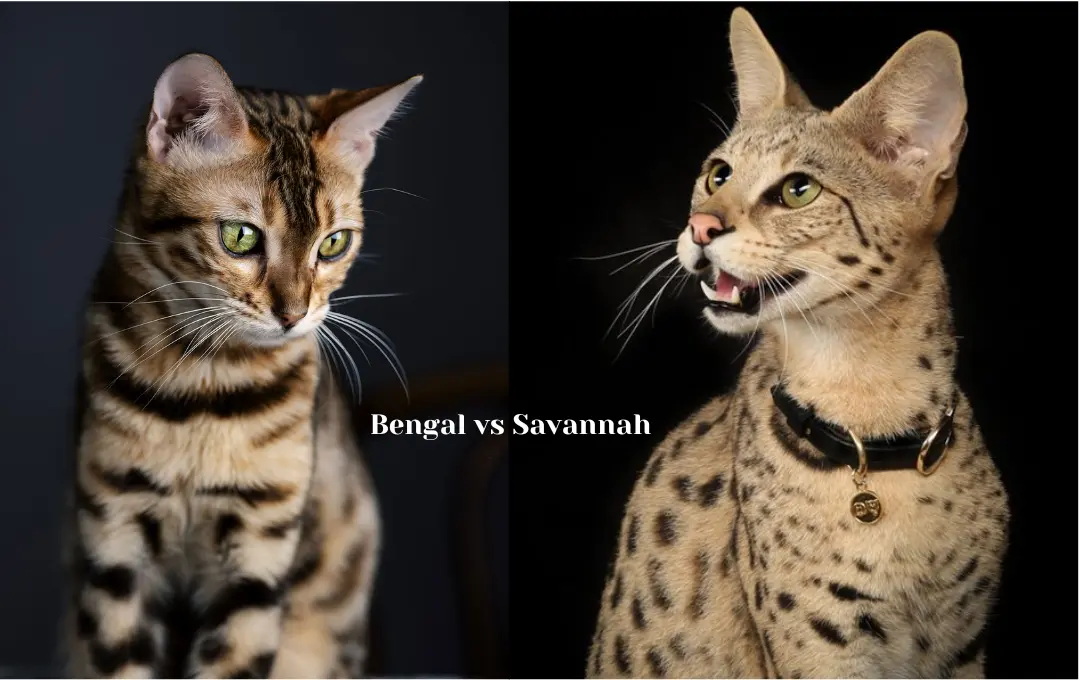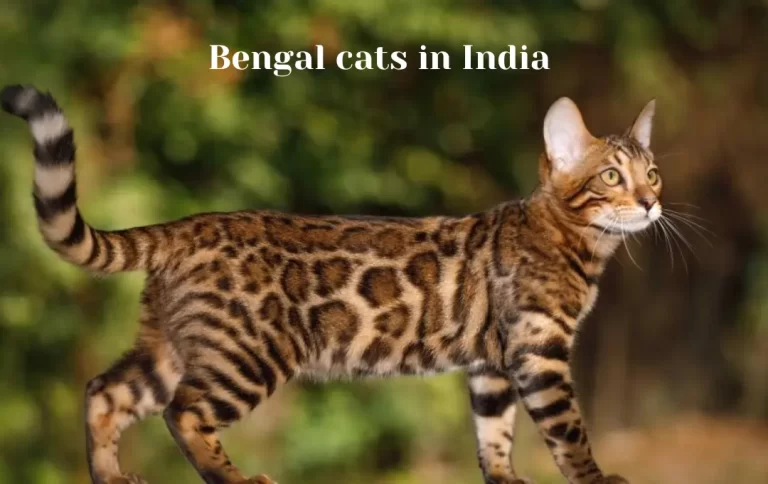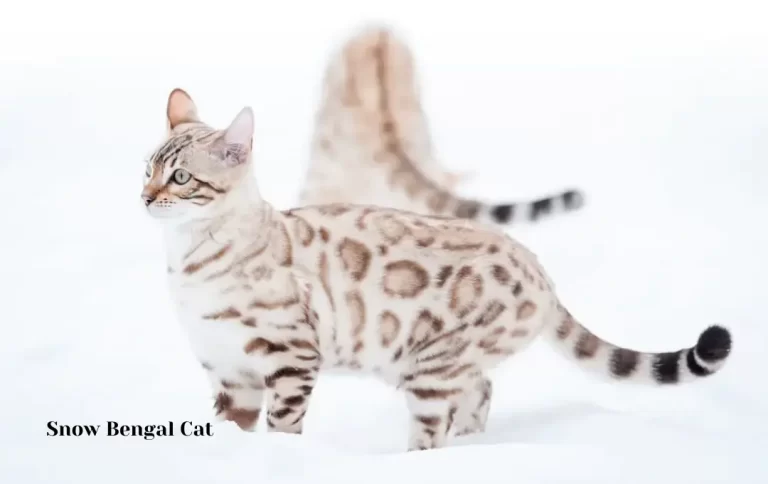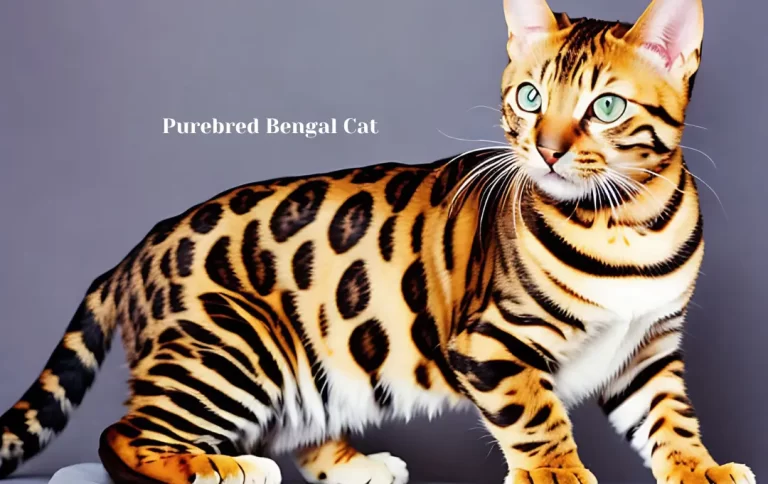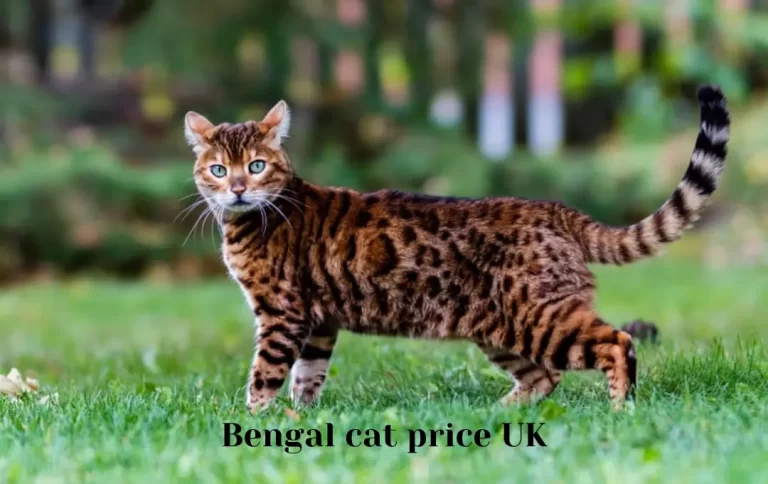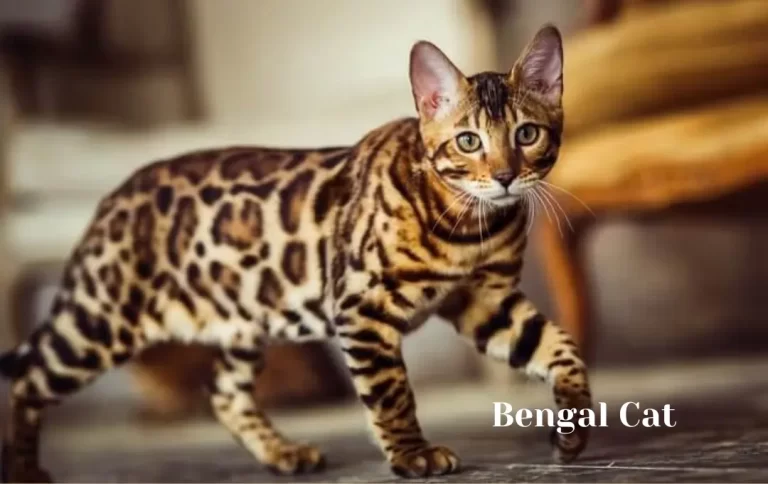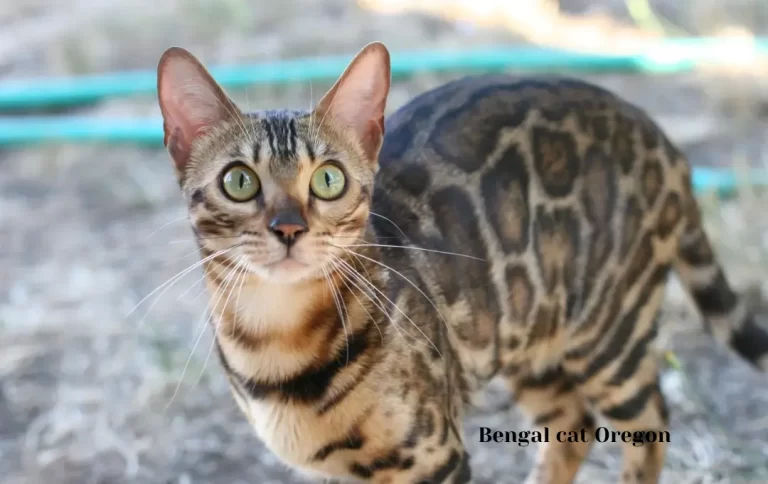Competitive Bengal Cat vs Savannah Cat Price 2023 | What’s the Difference? Everything You Should Know
When it comes to choosing a feline companion, Bengal cats, and Savannah cats are two of the most sought-after breeds. These exotic and stunning cats have captivated the hearts of cat enthusiasts worldwide. While their beauty and unique characteristics are undeniably appealing, one significant factor that potential cat owners often consider is the price. In this comprehensive comparison, we’ll delve into the Bengal Cat vs Savannah Cat Price, exploring various elements that go into their price tags.
Overview of Breeds
Bengal Cats
Bengal cats are a hybrid breed known for their striking coat patterns resembling wild leopards. They were created by crossing Asian leopard cats with domestic cats, resulting in a mesmerizing combination of wild and domestic traits. Bengal cats are medium-sized with athletic bodies, making them agile and playful companions.
Savannah Cats
Savannah cats are a crossbreed between the serval, a wild African cat, and a domestic cat. These cats are recognized for their tall, slender bodies, large ears, and distinctive spotted coats. Savannah cats have a reputation for being active, energetic, and highly intelligent.
Initial Bengal Cat vs Savannah Cat Price
When considering the cost of acquiring a Bengal or Savannah cat, there are several factors to take into account.
Bengal Cat Price
- Purebred Bengal Kittens: On average, purebred Bengal kittens can cost anywhere from $1,000 to $4,000 or more, depending on their lineage and coat quality.
- Bengal Cats with Show Potential: If you’re interested in a Bengal cat with show potential, you can expect to pay significantly more, potentially reaching prices of $5,000 to $10,000.
Savannah Cat Price
- F1 Savannah Kittens: First-generation (F1) Savannah kittens, which have a higher percentage of serval genetics, tend to be the most expensive, with prices ranging from $12,000 to $25,000 or even higher.
- Later-Generation Savannahs: As you move to later generations (F2, F3, etc.), the price typically decreases, ranging from $2,000 to $12,000, depending on their generation and appearance.
Maintenance Costs
Bengal Cat Maintenance Costs
- Food: High-quality cat food for Bengal cats can cost between $20 to $50 per month.
- Litter: Litter expenses average around $10 to $20 per month.
- Healthcare: Routine vet visits, vaccinations, and preventative care can add up to an annual cost of $300 to $600.
Savannah Cat Maintenance Costs
- Food: Savannah cats require premium nutrition, with monthly food costs ranging from $30 to $70.
- Litter: Similar to Bengal cats, litter expenses can vary from $10 to $20 per month.
- Healthcare: Due to their hybrid nature, Savannah cats may require more specialized veterinary care, with annual costs ranging from $500 to $1,000.

Are Savannah cats hard to take care of?
Savannah cats require more activity and care than some other breeds.
Ongoing Expenses
Bengal Cat Ongoing Expenses
- Toys and Enrichment: Bengals are active and playful cats, so budgeting for toys and enrichment activities is essential. This can amount to $10 to $20 per month.
- Pet Insurance: Consider pet insurance, which typically costs $20 to $50 per month, to cover unexpected medical expenses.
Savannah Cat Ongoing Expenses
- Toys and Enrichment: Savannah cats are highly intelligent and need mental stimulation. Plan for a monthly expense of $10 to $20 for toys and enrichment.
- Pet Insurance: Given the potential for higher healthcare costs, pet insurance for Savannah cats may cost between $30 to $70 per month.
Legal Restrictions
It’s important to note that in some regions, owning Savannah cats may come with legal restrictions due to their wild heritage. These restrictions can vary, potentially affecting the availability and price of Savannah cats in your area.
Considerations Before Buying
Before you decide to bring home a Bengal or Savannah cat, there are several essential considerations to keep in mind:
Space and Environment
Both Bengal and Savannah cats are active and need ample space to roam, play, and exercise. Make sure your home can accommodate their need for physical and mental stimulation. Providing a safe outdoor enclosure or “catio” can also enhance their quality of life.
Time and Attention
These breeds are known for their social and interactive nature. Be prepared to spend time playing with and engaging your cat in various activities to keep them mentally and physically stimulated.
Veterinary Care
As mentioned earlier, both Bengal and Savannah cats may require specialized veterinary care, especially as they age. Ensure you have access to a veterinarian experienced with these breeds.
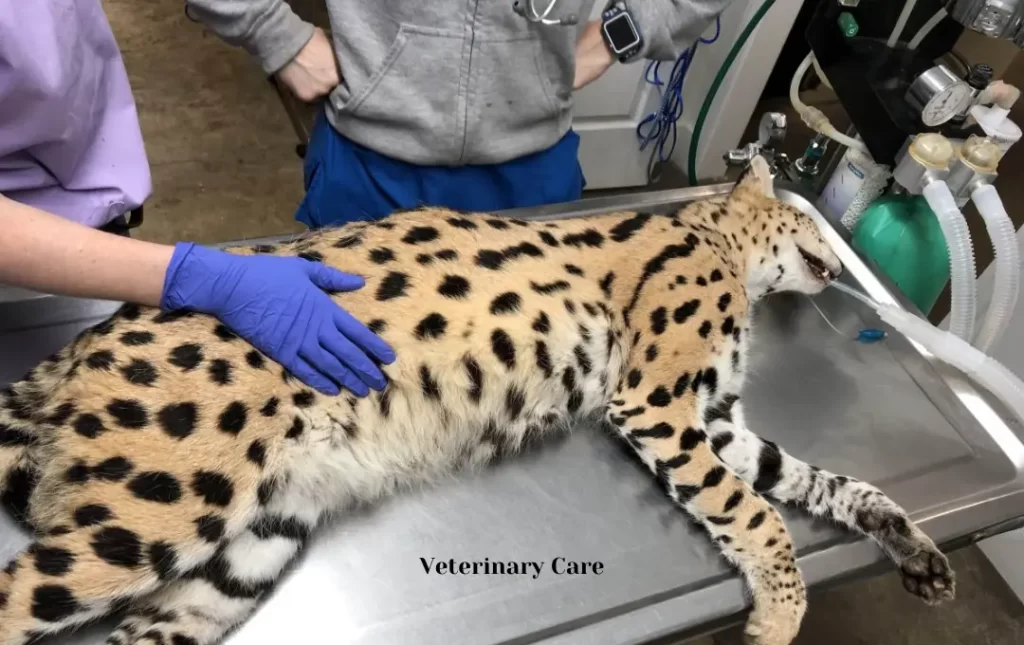
Legal and Ethical Considerations
Research local laws and regulations regarding ownership of hybrid or exotic cat breeds like Savannahs. Additionally, consider the ethical implications of owning a hybrid cat, as some animal welfare organizations and experts discourage their breeding.
Adoption vs. Purchase
While we’ve discussed the prices associated with purchasing Bengal and Savannah cats from breeders, adopting from a rescue or shelter is also a viable and compassionate option. It can be more affordable and allows you to provide a loving home to a cat in need.
Sense of Ownership
Responsible ownership of Bengal and Savannah cats goes beyond just meeting their financial needs. Here are some additional tips to ensure you provide a happy and healthy life for your chosen feline companion:
Socialization
Both Bengal and Savannah cats thrive on social interaction. Spend quality time with them daily, engaging in play and bonding activities. This not only strengthens your relationship but also prevents behavioral issues that may arise from boredom.
Training
Invest time in training your cat. These breeds are highly intelligent and can learn tricks, respond to commands, and even enjoy puzzle toys that challenge their minds. Training provides mental stimulation and helps with obedience.
Proper Diet
Feed your cat a balanced and appropriate diet. Consult with your veterinarian to determine the best food for your cat’s specific needs, taking into account their age, activity level, and any dietary restrictions.
Regular Vet Visits
Schedule regular vet check-ups, vaccinations, and preventative care as recommended by your veterinarian. Prompt medical attention can catch and address health issues early, ensuring a longer and healthier life for your feline friend.
Secure Environment
Ensure your home is safe and escape-proof, especially if you own a Savannah cat with a strong desire to explore. Be cautious with open windows and doors, and consider installing escape-prevention measures like window screens or secure fencing for outdoor enclosures.
Responsible Breeding and Adoption
If you decide to get your Bengal or Savannah cat from a breeder, it’s crucial to support responsible breeding practices. Here are some factors to consider:
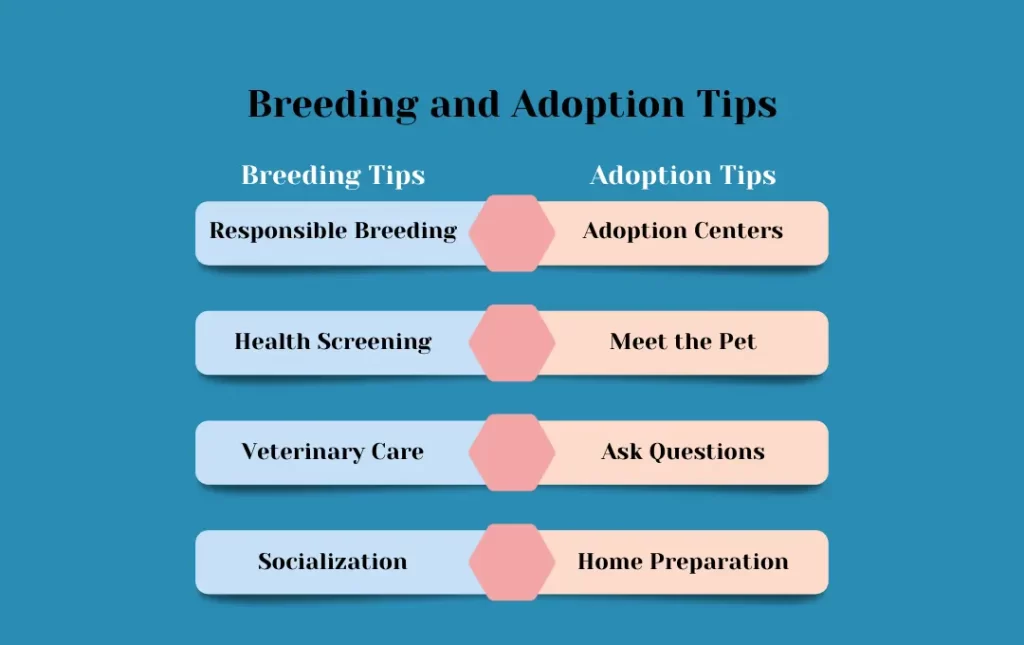
Reputable Breeders
Choose a breeder who is well-regarded within the cat breeding community. They should be knowledgeable about the breed, follow ethical breeding standards, and provide a healthy and nurturing environment for their cats and kittens.
Health Screening
Ensure that the breeder conducts thorough health screening for their breeding cats to minimize the risk of genetic diseases. Ask for health records and certifications to validate the health of the kittens.
Ethical Treatment
Check that the breeder treats their cats ethically and provides them with proper care and socialization. This is crucial for the kittens’ development and temperament.
Adoption Alternatives
Consider adoption as a responsible choice. Many Bengal and Savannah cats end up in rescue organizations and shelters due to various reasons. Adopting a cat in need can be a rewarding experience and may come at a lower cost than purchasing from a breeder.
Nurturing Their Unique Personalities
Bengal and Savannah cats come with distinctive personalities and quirks. Understanding and appreciating these traits can enhance your relationship with your feline friend.
Bengal Cat Personalities
- Playfulness: Bengals are known for their playful nature. Provide them with toys and interactive games to satisfy their need for mental and physical stimulation.
- Affection: While Bengals are independent, they can also be affectionate and enjoy cuddling with their human companions.
- Talkativeness: Bengals are quite vocal and may engage in conversations with you. Be prepared for their expressive meows.
Savannah Cat Personalities
- Curiosity: Savannah cats are incredibly curious and enjoy exploring their surroundings. Ensure your home is cat-proofed to prevent any accidents.
- Bonding: Savannah cats often form strong bonds with their owners and may follow you around the house like a loyal dog.
- Energy: Their high energy levels mean that they thrive on activities that challenge their agility and intellect.
Grooming and Care
Both Bengal and Savannah cats have short coats that are relatively easy to maintain. However, regular grooming is essential to keep them healthy and looking their best.
Bengal Cat Grooming
- Brushing: Bengals benefit from regular brushing to reduce shedding and maintain their coat’s shine. A weekly brushing session should suffice.
- Nail Trimming: Trim their nails as needed to prevent them from becoming too long and causing discomfort or damage.
Savannah Cat Grooming
- Brushing: Savannah cats may have longer hair in some areas, so they may require slightly more attention when it comes to brushing.
- Nail Care: Keep their nails trimmed to prevent them from getting too sharp.
Enrichment and Exercise
Both breeds are known for their active lifestyles and intelligence. Providing opportunities for exercise and mental stimulation is crucial to their well-being.
Playtime and Toys
Invest in a variety of interactive toys and engage in regular playtime sessions to keep your cat mentally engaged and physically active.
Cat Trees and Scratching Posts
Cat trees and scratching posts are excellent additions to your home. They provide a place for your cat to exercise, scratch, and perch.
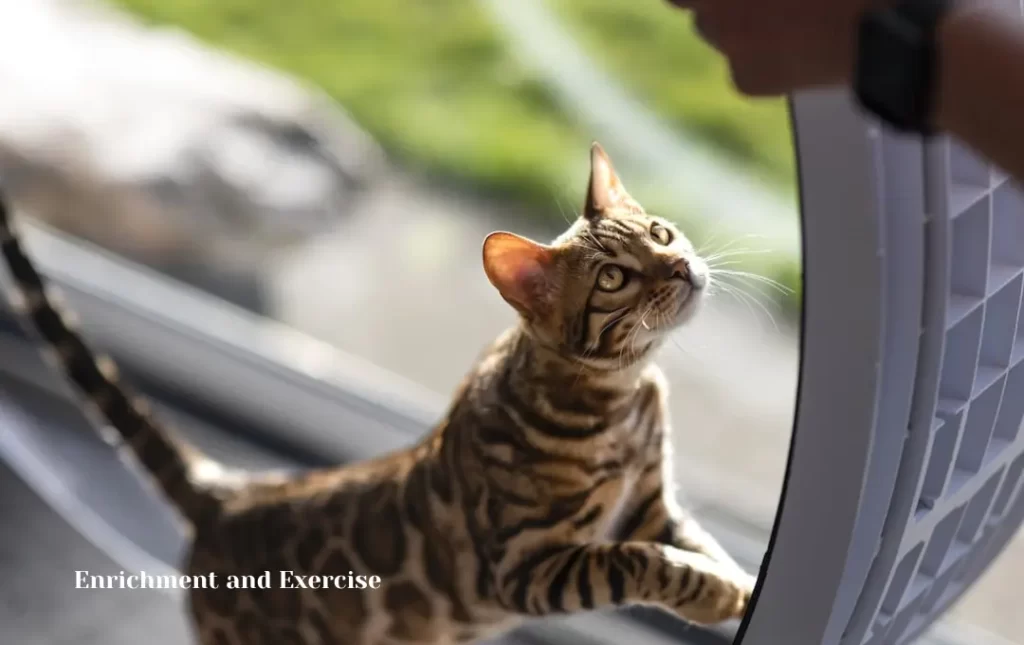
Puzzle Feeders
Consider using puzzle feeders or treat-dispensing toys to challenge their problem-solving skills while keeping them entertained.
Health and Wellness
Ensuring the health and wellness of your Bengal or Savannah cat is paramount. Here are some additional considerations:
Regular Check-ups
Schedule regular vet check-ups for your cat. Early detection of health issues can significantly impact the outcome. Your veterinarian can also provide guidance on vaccinations, dental care, and preventative treatments.
Diet and Nutrition
Pay careful attention to your cat’s diet. Both breeds may have specific dietary needs. Consult with your vet to choose the right food and feeding schedule to maintain optimal health and weight.
Exercise Routine
Establish a consistent exercise routine to keep your cat active and prevent obesity, which can be a concern for indoor cats. Interactive play and puzzle toys are excellent ways to engage their bodies and minds.
Socialization and Interaction
Bengal and Savannah cats thrive on human interaction and engagement. Here’s how you can foster a strong bond:
Quality Time
Set aside dedicated quality time for bonding with your cat. Play games, pet them, and offer affection regularly to strengthen your connection.
Socializing with Other Cats
If you have other cats, introduce them gradually and ensure a harmonious environment. Proper socialization can prevent conflicts and stress.
Environmental Enrichment
Create a stimulating environment with climbing structures, hideaways, and window perches. Cats love to observe the world outside, and this can provide hours of entertainment.
Travel and Boarding
Consider your travel plans and how they will impact your Bengal or Savannah cat. Cats are creatures of habit and can become stressed during travel or when left in unfamiliar environments. Plan for their comfort and well-being when you’re away from home.
Pet Sitters
Hire a trusted pet sitter who can care for your cat in your absence. This ensures they receive the attention and care they need in the comfort of their own home.
Boarding Facilities
If you need to board your cat, choose a reputable boarding facility that specializes in cat care. Ensure they are familiar with the specific needs of Bengal and Savannah cats.
Longevity and End-of-Life Care
As your Bengal or Savannah cat ages, their needs may change. Be prepared for end-of-life care and decisions, and consider these aspects:
Palliative Care
Discuss with your vet about palliative care options to ensure your cat’s comfort during their senior years or if they develop health issues.
Quality of Life
Continually monitor your cat’s quality of life. Consult with your vet to make informed decisions about treatments and interventions as they age.
Community and Support
Joining a community of Bengal or Savannah cat enthusiasts can be highly beneficial. You’ll gain access to valuable resources, advice, and a network of fellow cat lovers who can provide support and guidance throughout your cat’s life.
Breed-Specific Clubs
Consider joining breed-specific clubs or organizations dedicated to Bengal and Savannah cats. These groups often offer educational resources, breeder referrals, and opportunities to connect with other owners.
Online Forums and Social Media
Online forums, social media groups, and websites dedicated to these breeds can be excellent platforms for sharing experiences, asking questions, and staying updated on the latest developments in Bengal and Savannah cat care.
Education and Training
Investing time in understanding your cat’s behavior and training them can lead to a happier and more well-adjusted companion.
Behavior Training
Learn about cat behavior and positive reinforcement training techniques. This can help address common issues such as litter box problems or scratching furniture.
Environmental Enrichment
Continuously adapt and enrich your cat’s environment. Rotating toys, providing new climbing structures, and creating stimulating spaces can prevent boredom and behavioral problems.
Breed-Specific Challenges
Both Bengal and Savannah cats have unique characteristics that can present specific challenges. Being aware of these challenges can help you better meet your cat’s needs.
Bengal Cat Challenges
- High Energy: Bengals are known for their boundless energy. Make sure to engage them in active play to prevent destructive behavior.
- Prone to Obesity: Due to their love for food and playfulness, they can be prone to obesity. Monitor their diet and weight closely.
Savannah Cat Challenges
- Escape Artist: Savannah cats are known for their curiosity and desire to explore. Ensure they are in a secure environment to prevent escape.
- Social Needs: These cats can become very attached to their owners, which can lead to separation anxiety. Consider companionship or a pet sitter if you’re away frequently.
Frequently Asked Questions
Conclusion
In the Bengal Cat vs Savannah Cat price comparison, it’s evident that both breeds come with significant financial commitments. Bengal cats, with their striking appearance and playful nature, are relatively more accessible in terms of initial purchase price and ongoing expenses. On the other hand, Savannah cats, with their exotic look and intelligence, can be a considerably more expensive choice, particularly if you opt for early-generation cats.
Ultimately, the decision between Bengal and Savannah cats should not solely hinge on cost but also on your lifestyle, preferences, and ability to provide a suitable environment for these unique feline companions. Regardless of which breed you choose, the love and companionship they bring into your life are truly priceless.

